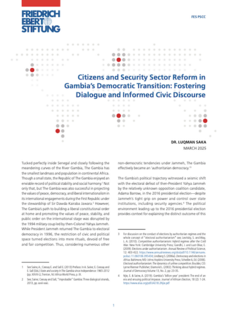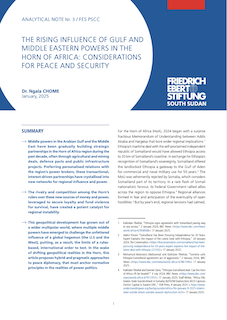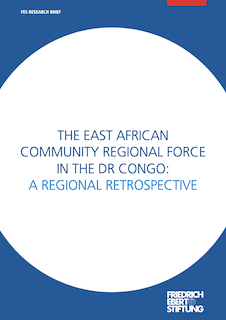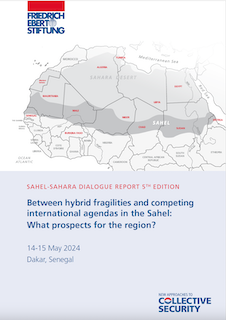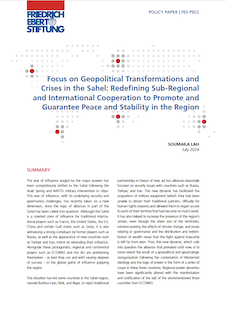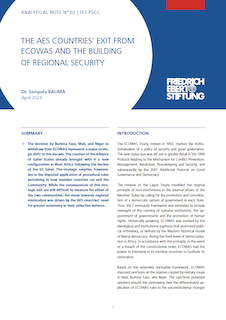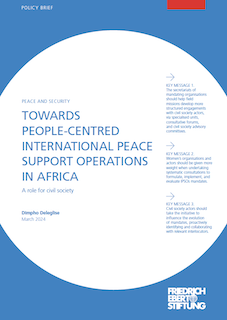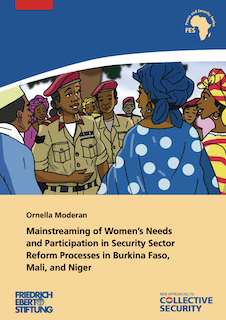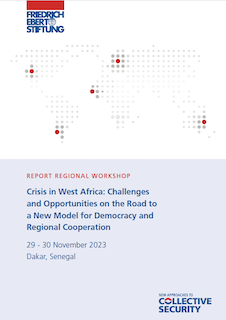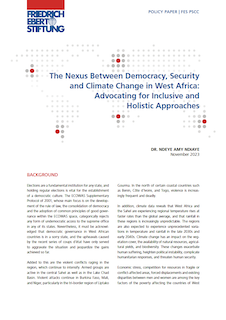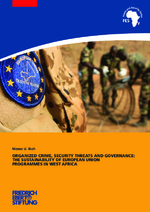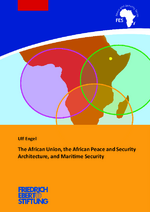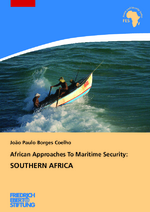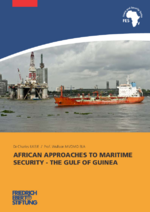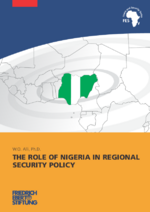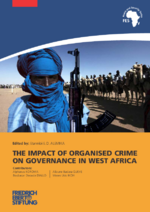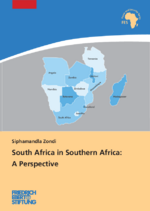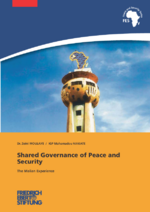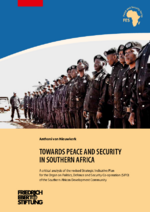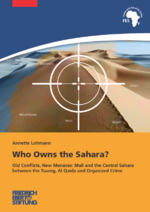Publications
Ikoh, Moses U.
Organized crime, security threats and governance: The sustainability of European Union programmes in West Africa
Download publication (10 MB PDF-File)
Engel, Ulf
The African Union, the African peace and security architecture, and maritime securtiy
Download publication (770 KB, PDF-File)
Borges Coelho, João Paulo
African approaches to maritime security
Maputo, 2014
Download publication (2,8 MB PDF-File)
Ukeje, Charles; Mvomo Ela, Wullson
African approaches to maritime security
Abuja, 2013
Download publication (650 KB, PDF-File)
Alli, W. O.
The role of Nigeria in regional security policy
Download publication (450 KB, PDF-File)
The impact of organised crime on governance in West Africa
Download publication (510 KB, PDF-File)
Zondi, Siphamandla
South Africa in Southern Africa
Maputo, 2012
Download publication (410 KB, PDF-File)
Moulaye, Zeïni; Niakaté, Mahamadou
Shared governance of peace and security
Abuja, 2012
Download publication (280 KB, PDF-File)
Van Nieuwkerk, Anthoni
Towards peace and security in Southern Africa
Maputo;Bonn, 2012
Download publication (330 KB, PDF-File)
Lohmann, Annette
Who owns the Sahara?
Abuja;Bonn, 2011
Download publication (310 KB, PDF-File)
Friedrich-Ebert-Stiftung
Peace and Security Centre of Competence Sub-Saharan Africa
Villa Ebert
Avenue des Ambassadeurs
Fann Résidence
25516 Dakar-Fann
Sénégal
Team and Contact
Reports
How to engage and with whom towards collective security in the Sahelo-Saharan region and in West Africa? Dakar, 4 - 5 December 2017
If you are interested in accessing all digitalized publications of Friedrich-Ebert-Stiftung, please visit the FES Digital Library. Please feel free to contact us if you are interested in a specific publication.
